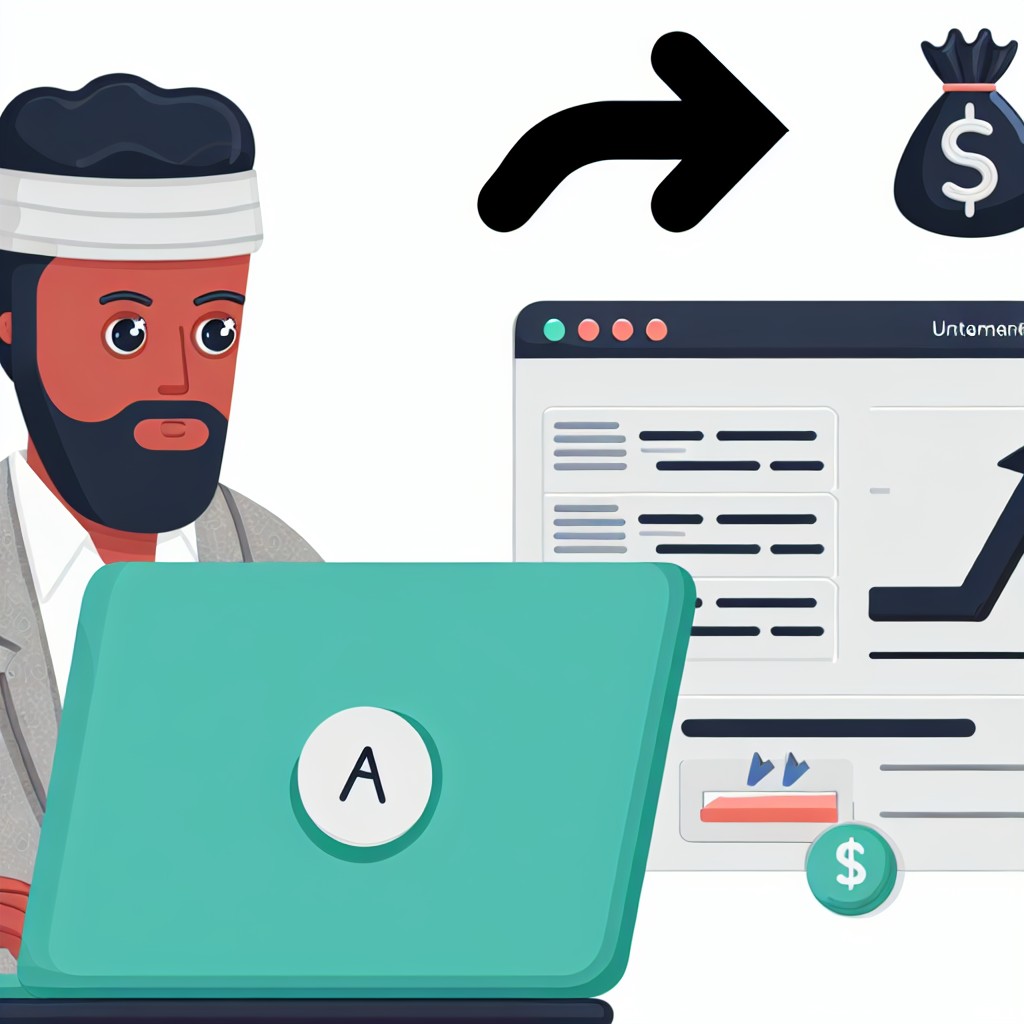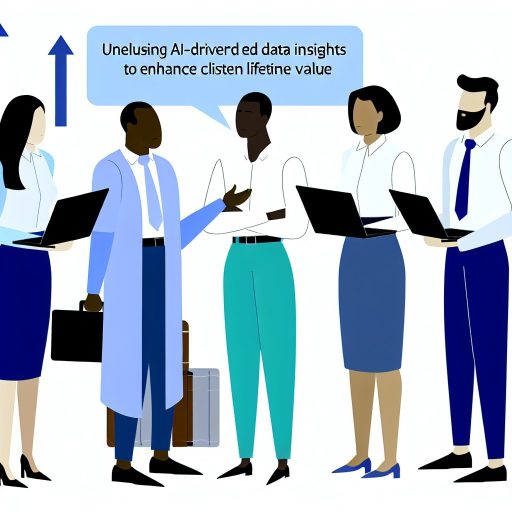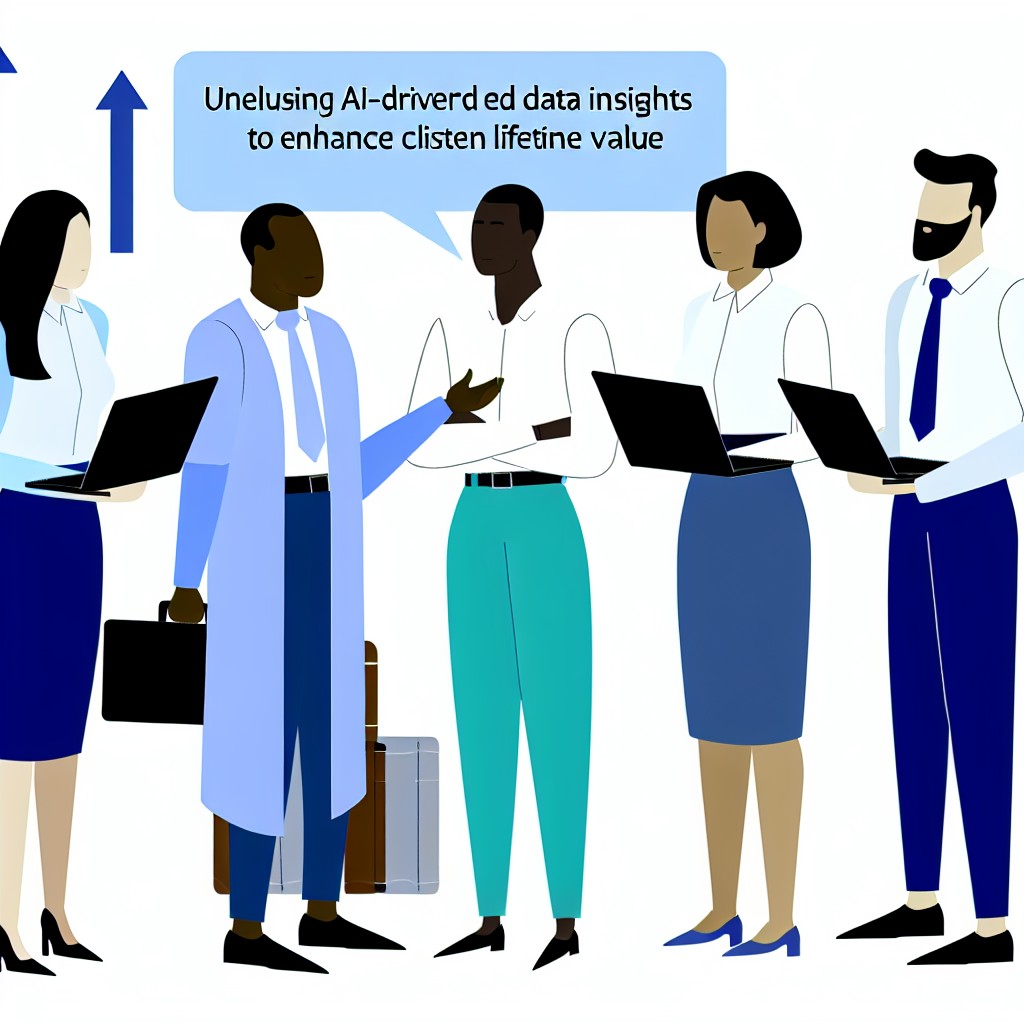Understanding Client Lifetime Value and its Importance in Business Growth
Defining Client Lifetime Value
Client Lifetime Value (CLV) represents the total revenue a business expects from a customer.
It measures a customer’s overall worth during their entire relationship with a company.
Therefore, CLV focuses on long-term customer profitability rather than one-time sales.
This metric helps companies prioritize resources to the most valuable clients.
Significance of CLV in Strategic Planning
Businesses use CLV to develop targeted marketing and retention strategies.
By understanding CLV, companies like SolariTech optimize efforts to increase customer loyalty.
Moreover, CLV enables smarter investment decisions on customer acquisition and service.
Consequently, it supports sustainable revenue growth over time.
Factors Influencing Client Lifetime Value
Several factors impact CLV, including purchase frequency and average order value.
Customer retention rates and satisfaction levels also play a crucial role.
For instance, AltaVista E-commerce increased CLV by improving user experience and follow-up service.
In addition, upselling and cross-selling initiatives boost overall customer value.
Benefits of Focusing on Client Lifetime Value
Focusing on CLV reduces marketing costs by emphasizing high-value clients.
It fosters customer-centric approaches that enhance brand loyalty.
Furthermore, companies identify growth opportunities within their existing customer base.
Retailer Emmett & Co. succeeded by leveraging CLV to tailor personalized offers.
Key Metrics Related to Client Lifetime Value
- Customer Acquisition Cost (CAC), which impacts profitability ratios.
- Retention Rate, reflecting how well a company maintains client relationships.
- Average Purchase Value, determining revenue generated per transaction.
- Purchase Frequency, showing the intervals between customer purchases.
Together, these metrics provide a comprehensive view of client value.
How AI Analyzes Customer Behavior to Predict Lifetime Value
Collecting and Integrating Customer Data
AI begins by gathering vast amounts of customer data from multiple touchpoints.
Companies like Meridian Analytics collect data from websites.
They also collect data from mobile apps.
Purchase histories are another source of data collection.
Moreover, AI integrates this data to create a unified customer profile.
This integration enables a comprehensive understanding of each customer’s interactions.
Consequently, AI can track behaviors across channels.
This tracking helps identify patterns effectively.
Identifying Behavioral Patterns
Next, AI applies machine learning algorithms to detect meaningful behavioral trends.
For example, Finch Analytics uses clustering techniques to segment customers by purchase frequency.
In addition, AI models analyze browsing habits to detect interests and preferences.
These insights help businesses anticipate customers’ future actions and needs.
Therefore, companies gain a strategic advantage by responding to customer signals promptly.
Predicting Lifetime Value Accurately
With patterns identified, AI forecasts each customer’s lifetime value through predictive modeling.
AI platforms like NovaraTech build models using historical transaction data.
They also use engagement metrics to improve predictions.
Furthermore, these models adjust continuously as new data arrives.
This adjustment improves prediction accuracy over time.
Put Your Tech Company on the Map!
Get featured on Nicholas Idoko’s Blog for just $50. Showcase your business, boost credibility, and reach a growing audience eager for tech solutions.
Publish NowAs a result, businesses can focus resources on high-value customers.
They can also create personalized offers for these customers.
This targeted approach increases retention.
It also maximizes revenue over time.
Enhancing Decision-Making and Personalization
AI insights empower marketing and sales teams to make data-driven decisions.
For instance, Evergreen Retail uses predicted lifetime value to tailor campaigns effectively.
Additionally, AI enables personalized product recommendations.
AI also helps optimize pricing strategies.
Such personalization strengthens customer relationships.
It boosts long-term profitability for businesses.
Ultimately, integrating AI transforms client management into a proactive process.
This process focuses on delivering value throughout the customer lifecycle.
Leveraging Machine Learning Models for Accurate CLV Prediction
Importance of Machine Learning in CLV Prediction
Machine learning enhances the precision of client lifetime value prediction.
Businesses can tailor marketing and retention strategies effectively by using machine learning.
These models analyze vast datasets to identify patterns imperceptible to humans.
Decision-makers gain deeper insights into customer behavior through these analyses.
Machine learning adapts to changing market trends and customer preferences effectively.
Key Machine Learning Techniques Used
- Regression models serve as a foundation for predicting continuous CLV values.
- Random forests improve prediction accuracy by combining multiple decision trees.
- Gradient boosting algorithms refine estimates by focusing on previous errors.
- Neural networks capture complex relationships in high-dimensional data.
- Clustering algorithms segment customers into meaningful groups based on behavior.
Data Preparation and Feature Engineering
High-quality data forms the backbone of accurate machine learning models.
Companies such as Meridian Data Solutions collect transaction history, demographics, and engagement metrics.
Feature engineering transforms raw data into actionable inputs for models.
Calculating recency, frequency, and monetary values enhances prediction quality.
Integrating external data sources further improves model robustness.
Model Training and Validation
Training involves feeding historical customer data into machine learning algorithms.
Validation tests model performance on unseen data to prevent overfitting.
Cross-validation techniques help ensure the model generalizes well.
Tech firms such as Solaria Insights emphasize rigorous testing before deployment.
Performance metrics like RMSE and MAE quantify prediction errors clearly.
Real-World Applications and Benefits
Retailers such as Brighton Apparel use machine learning to optimize marketing spend.
They allocate budgets by targeting customers with the highest predicted CLV.
This approach increases return on investment and customer satisfaction.
Subscription services leverage predictions to reduce churn rates effectively.
Ultimately, machine learning empowers businesses to maximize long-term customer value.
Learn More: Automated Client Segmentation Software for Precision Marketing
Integrating AI-Driven Insights into Customer Segmentation Strategies
Leveraging AI to Refine Customer Segments
AI enhances the precision of customer segmentation beyond traditional methods.
It detects subtle patterns in purchasing behavior and engagement metrics.
Put Your Tech Company on the Map!
Get featured on Nicholas Idoko’s Blog for just $50. Showcase your business, boost credibility, and reach a growing audience eager for tech solutions.
Publish NowConsequently, companies like EverBright Solutions identify high-value customers more effectively.
Machine learning algorithms continuously adapt segments based on new data.
This dynamic approach helps marketing teams target prospects and loyal clients precisely.
Utilizing Behavioral and Predictive Analytics
Behavioral analytics reveal how customers interact with products and services.
For instance, Saturna FinTech uses AI to analyze user navigation and transaction frequency.
Predictive models anticipate future customer needs and buying tendencies.
Thus, businesses can tailor offers before clients seek alternatives.
Such forecasting supports retention efforts by addressing churn risks in advance.
Enhancing Personalization with AI Insights
Personalization fosters deeper connections between brands and consumers.
AI-powered segmentation identifies unique preferences and pain points swiftly.
As a result, targeted campaigns resonate more with individuals like technology enthusiasts or budget-conscious shoppers.
Marketing firm Crescendo Digital adopts these insights to increase conversion rates significantly.
Moreover, personalized customer journeys boost lifetime value and brand loyalty.
Implementing AI Tools within Segmentation Workflows
Modern AI tools integrate easily into existing customer relationship management systems.
Companies like Luminous Retail leverage platforms that automate data ingestion and analysis.
These solutions generate real-time segmentation updates and actionable reports.
Teams gain visibility into emerging trends and segment shifts quickly.
Consequently, decision-makers respond faster to changing market dynamics.
Best Practices for AI-Driven Customer Segmentation
Begin with clean, comprehensive datasets to ensure accurate AI outputs.
Use diverse data sources, including social media, purchase history, and support interactions.
Test AI models regularly to validate segment relevance and prevent bias.
Combine AI insights with human expertise to fine-tune targeting strategies.
Track key metrics such as engagement rates and customer retention continuously.
Benefits of AI-Enhanced Segmentation for Client Lifetime Value
Improved segmentation leads to more efficient marketing spend and messaging.
Clients receive offers aligned precisely to their needs and preferences.
This personalization reduces churn and fosters brand advocacy.
Ultimately, companies see increased revenue per client and stronger relationships.
Thus, integrating AI-driven insights propels competitive advantage in customer management.
You Might Also Like: Intelligent CRM Systems for Building Long-Term Client Loyalty
Personalizing Customer Engagement Based on AI-Generated Data
Leveraging Behavioral Analytics for Tailored Interactions
AI analyzes customer behavior continuously to identify preferences and patterns.
Companies such as LumenTech use this data to customize marketing messages effectively.
This approach increases relevance and strengthens customer connections with the brand.
Moreover, behavioral insights help anticipate customer needs before they express them.
By doing so, engagement becomes proactive rather than reactive, boosting satisfaction.
Segmenting Customers with Predictive Models
AI generates predictive models that classify customers into meaningful segments.
Put Your Tech Company on the Map!
Get featured on Nicholas Idoko’s Blog for just $50. Showcase your business, boost credibility, and reach a growing audience eager for tech solutions.
Publish NowFor example, NovaRetail divides users based on purchasing frequency and product interests.
Marketing teams can then craft targeted offers suited to each audience group.
This segmentation enhances conversion rates and reduces customer churn effectively.
Additionally, it saves resources by focusing efforts on high-value segments first.
Optimizing Communication Channels for Better Reach
AI evaluates which communication channels customers prefer, such as email or SMS.
As a result, firms like ClearWave Communications optimize touchpoints for maximum impact.
This ensures messages reach clients through their favored platforms promptly.
Subsequently, engagement metrics improve due to personalized channel usage.
Furthermore, this approach prevents customer fatigue from irrelevant or excessive messaging.
Creating Dynamic Content with AI-Driven Insights
AI enables the generation of content dynamically based on real-time customer data.
For instance, Horizon Events customizes event invitations according to attendee interests.
This personalization fosters greater participation and enthusiasm.
Additionally, adaptive content helps maintain engagement throughout the customer journey.
Therefore, clients feel valued through relevant and timely communication consistently.
Measuring Engagement to Refine Strategies
Analytics platforms powered by AI track the effectiveness of personalized engagements.
Organizations like BrightPath Advisors adjust campaigns based on feedback.
This iterative process improves customer lifetime value steadily over time.
Continuous measurement uncovers new opportunities for interaction enhancements.
Consequently, businesses stay agile and customer-focused in competitive markets.
Learn More: Smart Data Tools for Predicting High-Value Client Needs
Optimizing Marketing Spend Using AI to Focus on High-Value Clients
Identifying High-Value Clients through AI Analytics
AI algorithms analyze vast customer data to identify high-value clients accurately.
They detect purchasing patterns and predict future revenue potential effectively.
Consequently, marketing teams can prioritize clients who generate the most profit.
For instance, Meridian Capital uses AI models to segment clients by lifetime value.
This method allows targeted campaigns that maximize return on marketing investment.
Allocating Budget Efficiently with Predictive Insights
AI-powered insights enable precise budget allocation towards promising customer segments.
Marketers avoid wasteful spending on low-value leads or unresponsive audiences.
By contrast, resources focus on personalized offers for clients with high engagement.
Horizon Analytics, a marketing consultancy, reduced acquisition costs by 30% using this approach.
Thus, AI supports smarter decisions to optimize marketing expenses and outcomes.
Enhancing Campaign Performance through Continuous Learning
AI systems continuously learn from campaign results and customer responses.
They adjust strategies dynamically to improve targeting and message relevance.
Accordingly, companies maintain competitive advantage by staying aligned with client needs.
Pathfinder Retail increased customer retention by adapting offers with AI feedback loops.
This ongoing optimization ensures marketing efforts yield higher lifetime value.
Put Your Tech Company on the Map!
Get featured on Nicholas Idoko’s Blog for just $50. Showcase your business, boost credibility, and reach a growing audience eager for tech solutions.
Publish NowImplementing AI Tools for Scalable Marketing Efficiency
Integrating AI tools automates data analysis and decision-making processes.
Marketing teams save time while accessing actionable client insights instantly.
Bluewave Media adopted AI platforms to scale campaigns across multiple channels.
This integration improved lead quality and increased conversion rates significantly.
Therefore, leveraging AI technology empowers businesses to optimize marketing spend effectively.
You Might Also Like: Advanced API Integrations for a Seamless Client Experience

Using AI for Real-Time Monitoring and Enhancing Client Retention
Real-Time Client Behavior Analysis
AI systems continuously monitor client interactions across multiple platforms.
They detect changes in behavior patterns promptly and accurately.
Consequently, businesses can identify early warning signs of potential churn.
For example, Ardent Software uses AI to track user activity and engagement metrics in real time.
This approach allows the company to tailor interventions before clients disengage.
Personalized Retention Strategies
AI analyzes individual preferences and purchase history effectively.
Thus, companies create customized offers that resonate with each client.
Moreover, predictive models forecast lifetime value and risks for every customer.
Radiant Finance applies AI-driven insights to design loyalty programs that increase client satisfaction.
Furthermore, personalized communication fosters stronger emotional connections with clients.
Automated Alerts and Proactive Engagement
AI tools send instant alerts to account managers when risk factors emerge.
This enables immediate outreach to address concerns and improve client experience.
For instance, Vesper Retail uses AI notifications to support their customer success teams.
Prompt interventions decrease churn rates significantly and boost retention.
Additionally, AI-driven chatbots provide 24/7 assistance, enhancing client support accessibility.
Continuous Performance Monitoring and Feedback Loops
AI platforms track the effectiveness of retention tactics over time.
They gather real-time feedback and adjust strategies accordingly.
As a result, businesses maintain dynamic engagement models that evolve with client needs.
For example, Meridian Health integrates AI monitoring to refine patient communication and follow-ups.
This continuous improvement cycle drives sustained client loyalty and lifetime value.
Benefits of Integrating AI in Client Retention
- Enhanced accuracy in identifying client satisfaction signals
- Improved timing for outreach and personalized offers
- Reduction in manual monitoring efforts and operational costs
- Greater scalability to manage growing client bases efficiently
- Data-driven insights supporting strategic decision-making
Case Studies of AI Implementation to Boost Client Lifetime Value
Enhancing Customer Retention with Predictive Analytics at LuminaTech
LuminaTech integrated AI-driven predictive analytics into their customer management system.
This technology identified clients with high churn risk early on.
Consequently, the company personalized engagement strategies for those clients.
As a result, LuminaTech increased client retention rates significantly within six months.
Moreover, this improvement contributed to a 20% rise in lifetime value per customer.
Personalized Marketing Campaigns at BlueWave Financial
BlueWave Financial deployed AI algorithms to tailor marketing messages uniquely for each client.
The AI analyzed transaction patterns and customer preferences effectively.
Thereby, the bank presented relevant offers and services to individual clients.
This strategy noticeably increased client engagement and satisfaction scores.
Put Your Tech Company on the Map!
Get featured on Nicholas Idoko’s Blog for just $50. Showcase your business, boost credibility, and reach a growing audience eager for tech solutions.
Publish NowSubsequently, revenue per client grew steadily due to upselling and cross-selling opportunities.
Optimizing Customer Support with AI Chatbots at Verda Health
Verda Health implemented AI-powered chatbots to improve customer support efficiency.
These chatbots handled routine inquiries and resolved common issues rapidly.
Therefore, support teams could focus on addressing more complex client needs.
Customer satisfaction improved due to faster response times and 24/7 availability.
Consequently, Verda Health saw an increase in customer loyalty and repeat service usage.
AI-Driven Product Recommendations at TerraStyle Apparel
TerraStyle Apparel used machine learning to create dynamic product recommendation engines.
The system analyzed browsing behavior and previous purchases attentively.
Thus, customers received personalized product suggestions tailored to their tastes.
This AI application substantially boosted average order value and purchase frequency.
Additionally, the brand strengthened client relationships through relevant and timely offers.
Fraud Detection and Risk Management at Nexa Insurance
Nexa Insurance integrated AI models to detect fraudulent claims early in the process.
The system analyzed patterns and flagged suspicious activities proactively.
As a result, fraud losses decreased significantly over the first year of implementation.
This efficiency allowed Nexa to allocate more resources towards premium customer experiences.
Ultimately, clients benefited from faster claims processing and enhanced trust.
Challenges and Ethical Considerations in Using AI for CLV Enhancement
Data Privacy and Security Concerns
Many companies collect vast amounts of customer data to improve insights.
However, protecting this sensitive information remains a serious challenge.
ClientTrust Solutions emphasizes the importance of data encryption and secure storage.
Moreover, minimizing data exposure reduces risks of unauthorized access.
Organizations must comply with regulations like GDPR and CCPA at all times.
Failing to do so can result in heavy fines and reputational damage.
Therefore, businesses should implement strong data governance policies.
These measures foster trust and ensure ethical data handling practices.
Bias and Fairness in AI Algorithms
AI models learn from historical data, which may contain biases.
For example, biased data can lead to unfair treatment of certain customer groups.
BrightWave Analytics routinely audits their algorithms to detect potential biases.
Furthermore, transparency in AI decision-making helps identify unfair outcomes.
Companies must strive to create models that treat all customers equitably.
Addressing bias improves customer satisfaction and long-term loyalty.
Transparency and Explainability
Clients often question how AI makes decisions about their value and offers.
Hence, companies like LuminaTech provide explainable AI solutions.
Clearly communicating AI processes builds customer confidence and acceptance.
Moreover, explainability helps internal teams trust AI-driven recommendations.
Transparent practices also support compliance with emerging AI regulations.
Put Your Tech Company on the Map!
Get featured on Nicholas Idoko’s Blog for just $50. Showcase your business, boost credibility, and reach a growing audience eager for tech solutions.
Publish NowCustomer Consent and Ethical Use of AI
Obtaining clear consent before using customer data is essential.
DataWorks Global ensures clients understand how their information will be used.
Ethical AI use respects customer autonomy and privacy preferences.
Businesses should avoid manipulative tactics that exploit AI insights unethically.
Instead, they should focus on enhancing genuine customer value and experience.
Balancing Automation with Human Oversight
AI enhances decision-making but cannot replace human judgment entirely.
At Blue Ridge Ventures, teams combine AI insights with expert evaluation.
This balance minimizes errors and addresses unexpected situations effectively.
Human oversight also ensures AI recommendations align with company values.
Consequently, this approach fosters responsible AI integration for CLV growth.
Future Trends: AI Innovations Shaping Client Value Optimization
Advancements in Predictive Analytics
Companies increasingly rely on AI-driven predictive analytics to forecast client behaviors.
These insights help marketing teams at firms like Novara Solutions tailor personalized offers effectively.
Moreover, predictive models identify potential churn risks sooner than traditional methods.
Consequently, businesses can proactively engage high-risk clients to improve retention rates.
In addition, real-time data integration enhances the accuracy of customer lifetime value predictions.
Integration of AI in Customer Experience Management
AI tools enable brands such as Solace Technologies to customize user interactions dynamically.
Chatbots and virtual assistants deliver instant support, improving client satisfaction instantly.
Besides, sentiment analysis algorithms interpret client feedback for continuous service improvements.
Therefore, companies can adapt their communication strategies to evolving customer preferences.
Furthermore, AI-driven automation streamlines routine tasks, allowing teams to focus on strategic initiatives.
Emergence of Hyper-Personalization Strategies
Hyper-personalization leverages AI to tailor products and services uniquely for each client.
Firms like Lumina Ventures utilize machine learning to analyze granular customer data effortlessly.
This approach boosts client engagement by offering relevant recommendations and promotions.
Additionally, AI refines segmentation beyond demographics by incorporating behavioral and psychographic factors.
As a result, companies achieve increased customer loyalty and higher lifetime values.
AI-Powered Customer Journey Mapping
Modern AI solutions visualize complex client journeys across multiple touchpoints effectively.
Zentari Analytics uses these maps to identify friction points and optimize user experiences quickly.
By analyzing journey data, businesses can fine-tune marketing efforts to match customer needs precisely.
Ultimately, this leads to reduced drop-offs and enhanced conversion rates across sales funnels.
Furthermore, continuous AI learning adapts journeys as market conditions evolve.
Ethical AI and Data Privacy Considerations
Organizations like Veridex Innovations prioritize transparency and ethics in AI applications.
They ensure AI systems adhere to data privacy regulations such as GDPR and CCPA.
Ethical AI fosters client trust, essential for long-term value creation.
Thus, businesses commit to responsible data usage when implementing AI-driven strategies.
Consequently, clients feel secure engaging with personalized experiences without privacy concerns.
Put Your Tech Company on the Map!
Get featured on Nicholas Idoko’s Blog for just $50. Showcase your business, boost credibility, and reach a growing audience eager for tech solutions.
Publish NowAdditional Resources
Artificial intelligence (AI) applications for marketing: A literature …
AI customer service for higher customer engagement | McKinsey
Before You Go…
Hey, thank you for reading this blog post to the end. I hope it was helpful. Let me tell you a little bit about Nicholas Idoko Technologies.
We help businesses and companies build an online presence by developing web, mobile, desktop, and blockchain applications.
We also help aspiring software developers and programmers learn the skills they need to have a successful career.
Take your first step to becoming a programming expert by joining our Learn To Code academy today!
Be sure to contact us if you need more information or have any questions! We are readily available.
[E-Books for Sale]
1,500 AI Applications for Next-Level Growth: Unleash the Potential for Wealth and Innovation
$5.38 • 1,500 AI Applications • 228 pages
Are you ready to tap into the power of Artificial Intelligence without the tech jargon and endless guesswork? This definitive e-book unlocks 1,500 real-world AI strategies that can help you.
See All 1,500 AI Applications of this E-Book
750 Lucrative Business Ideas: Your Ultimate Guide to Thriving in the U.S. Market
$49 • 750 Business Ideas • 109 pages
Unlock 750 profitable business ideas to transform your future. Discover the ultimate guide for aspiring entrepreneurs today!
See All 750 Business Ideas of this E-Book
500 Cutting-Edge Tech Startup Ideas for 2024 & 2025: Innovate, Create, Dominate
$19.99 • 500 Tech Startup Ideas • 62 pages
You will get inspired with 500 innovative tech startup ideas for 2024 and 2025, complete with concise descriptions to help you kickstart your entrepreneurial journey in AI, Blockchain, IoT, Fintech, and AR/VR.
We Design & Develop Websites, Android & iOS Apps
Looking to transform your digital presence? We specialize in creating stunning websites and powerful mobile apps for Android and iOS. Let us bring your vision to life with innovative, tailored solutions!
Get Started Today





